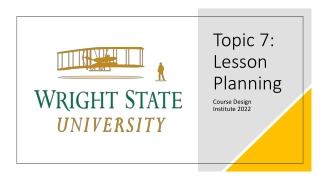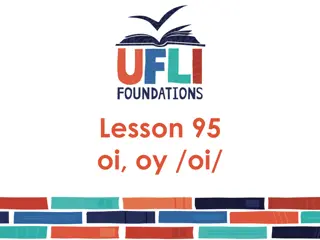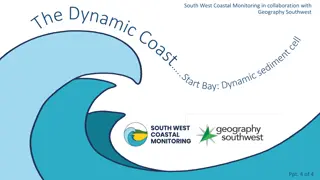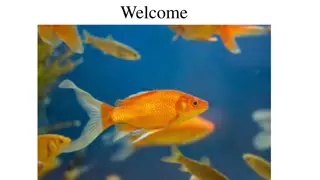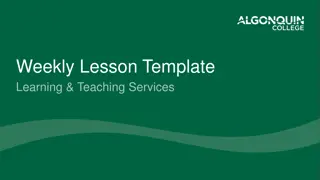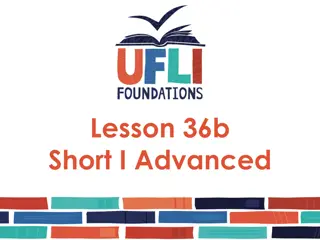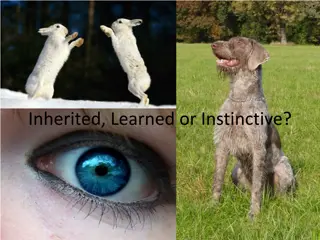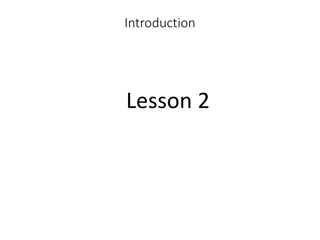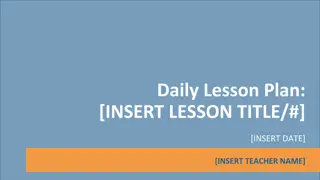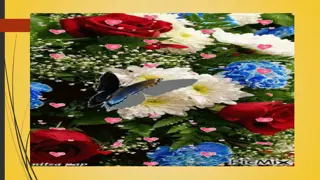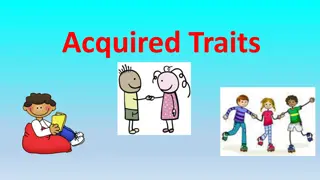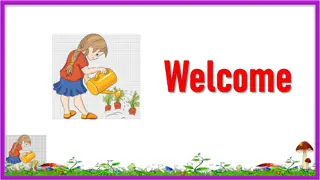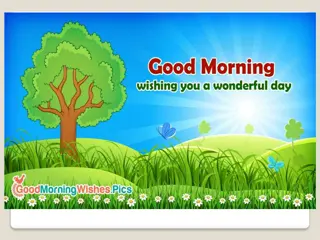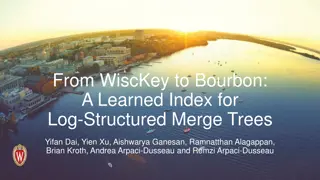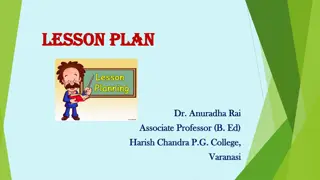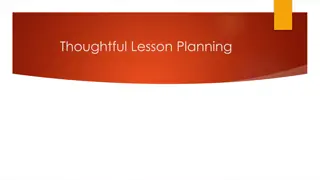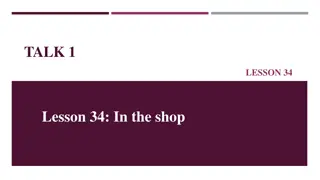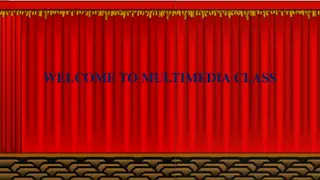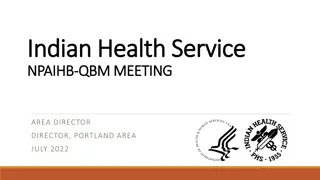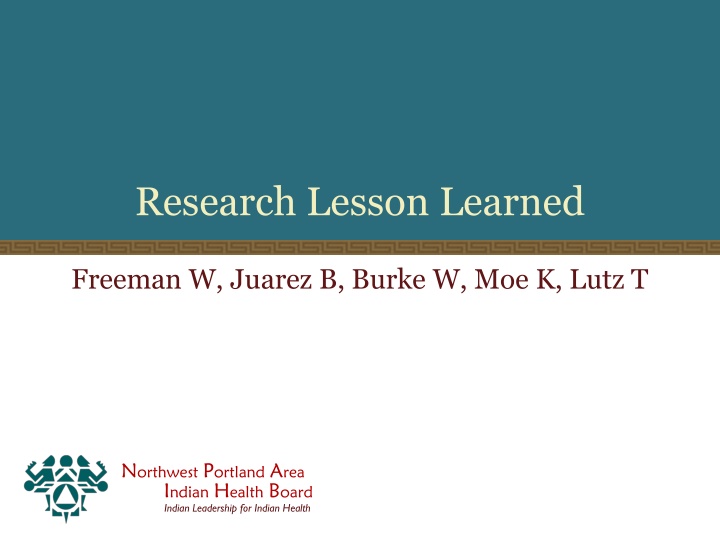
Lessons Learned in Protecting Human Subjects in Native American Communities
Explore the historical context and community responses regarding human subjects' protection in Native American communities, showcasing the importance of respectful communication and research partnerships aligned with community needs.
Download Presentation

Please find below an Image/Link to download the presentation.
The content on the website is provided AS IS for your information and personal use only. It may not be sold, licensed, or shared on other websites without obtaining consent from the author. If you encounter any issues during the download, it is possible that the publisher has removed the file from their server.
You are allowed to download the files provided on this website for personal or commercial use, subject to the condition that they are used lawfully. All files are the property of their respective owners.
The content on the website is provided AS IS for your information and personal use only. It may not be sold, licensed, or shared on other websites without obtaining consent from the author.
E N D
Presentation Transcript
Research Lesson Learned Freeman W, Juarez B, Burke W, Moe K, Lutz T Northwest Portland Area Indian Health Board Indian Leadership for Indian Health
Presenters William Freeman, MD, MPH, CIP Director of Tribal Community Health Programs, NWIC Human Protections Administrator, NWIC Wylie Burke, Chair Department of Bioethics and Humanities, UW Karen Moe, Director Human Subjects Division, UW Barbara Juarez, Director Lummi Tribal Health Center Jacqueline Left Hand Bull, Administrative Officer NPAIHB, FASD Project Tam Lutz, Project Director/Jr -Investigator NPAIHB
Outline Context of specific case and how it came into discussion Historical context of human subjects Protection in Indian Country The case The community response Current UW research process for protecting human subjects and communities Respectful communication on research with communities Benefit of research partnerships when aligned with community needs Implications for future discussion
Historical Background William L. Freeman, MD, MPH, CIP Program Director, Northwest Indian College Center for Health Northwest Portland Area Indian Health Board Indian Leadership for Indian Health
Historical Perspective: IHS Policy Tribal Approval Required 1968 IHS Director, Dr. Emory Johnson, issued policy BUT, policies do not self-implement: Turnover of personnel
Historical Perspective: Hantavirus Epidemic, 1993 Navajo Nation asked CDC to not include Navajo place names in scientific reports First report had Navajo place names IHS Research Director told CDC to delete Navajo place names in its upcoming second article Yet CDC did not delete Navajo place names The IHS Research Director had failed Navajo Nation
Consequences of that Historical Failure IHS Research Director thereafter always told Tribes that IHS could protect adequately them from harmful research, & recommended that they establish their own Institutional Review Boards [IRBs] Most Area IHS IRBs are now run by the Tribe s Area Health Board
Case of Tribe protecting Themselves The story of one research project Highly beneficial to a Tribe Yet also was harmful What the Tribe itself did to protect itself and its people, while still getting the benefit of that research
The Case: FASD Research at Lummi Nation Barbara Juarez Director, Lummi Tribal Health Center Northwest Portland Area Indian Health Board Indian Leadership for Indian Health
The Case: FASD at Lummi My role at Lummi Nation during case The Status Quo of research process at that time How this research was initiated How participants were recruited Clinical intervention provided at that time Unintended harm that occurred from clinical diagnosis Provision of resource for those who felt harmed by this process Secondary Study photos shared of diagnosis Conference providing key information and opportunity to
The Case: FASD at Lummi At the time, not a whole lot of resources available for the people that were diagnosed. Secondary study with Dr Streissguth Funding through NWIC obtained for conferences Photos were show of children who had FAS or FAE and people recognized these photos of individuals as relatives Conference created an opportunity to discuss the shame and guilt and pain of woman who have children or FAS or FAE orthwest Portland Area Indian Health Board 11
The Case: FASD at Lummi We tried to set up an opportunity to process what they thought and what they heard. These conferences happened once a year and gave people and opportunity to process the information that they heard and how they applied it to their life. Now there are trainings and awareness activities going on around FASD Status Quo now we have native researchers, an IRB, Health Commissions, Council that serves as gate keepers to research as it is proposed and implemented in the community 3/20/2025 Northwest Portland Area Indian Health Board 12
Perspectives from the University of Washington Wylie Burke Chair, Department of Bioethics and Humanities Karen Moe Director, Human Subjects Division Northwest Portland Area Indian Health Board Indian Leadership for Indian Health
University of Washington What do University based Researcher need to remember when working with communities Bringing benefit to community really matters For every project there has to be a post research process to discuss how it used and how it avoid harm to the community IRB can be a key place to provide guidance to UW researchers from the lessons learned
Research as a Tool Research is a means to generate new knowledge to increase understanding of health problems and ways to improve health care And like all tools Good for addressing some, but not all problems
The challenge for community- university research partnerships Historically, communities have been asked to participate in producing knowledge for the greater good with little attention to their needs and values. As a result, research has had limited direct impact on health disparities, and has sometimes caused harm.
Seeking Common Ground Communication Honest, transparent, meaningful Respectful listening and feedback Learning from each other Nurturing a foundation for trust and mutual benefit Clarify assumptions Find common values Recognize competing demands Make deliberate choices about what research to pursue, and how to do it
Need for Universitys Development and Advocacy Awareness of community issues and histories around research participation Preparation for research aligned with community health and health care priorities Policies for sharing control of research and publication
Clear Pathways To address current and past concerns For appropriate ways for the UW IRB to obtain consultation
The Healing Canoe Tribal partners: Port Gamble S Klallam and Suquamish UW researchers: Dennis Donovan and Lisa Rey Thomas UW IRB: Carl Rimmele and Deborah Dickstein
Next Steps Implications for Future Conversations Current Area Protections for Research in Tribal Communities Considerations for Protecting the Community and its Individuals Building Trust with Tribal Communities Addressing Reservations about Reservations on Research 3/20/2025 Northwest Portland Area Indian Health Board 21
Research Oversight by IHS William L. Freeman 360-392-4224 wfreeman@nwic.edu Wylie Burke wburke@u.washington.edu Barbara Juarez 360-384-0464 Karen Moe kemoe@u.washington.edu Tam Lutz 503-416-3271 tlutz@npaihb.org

